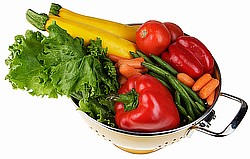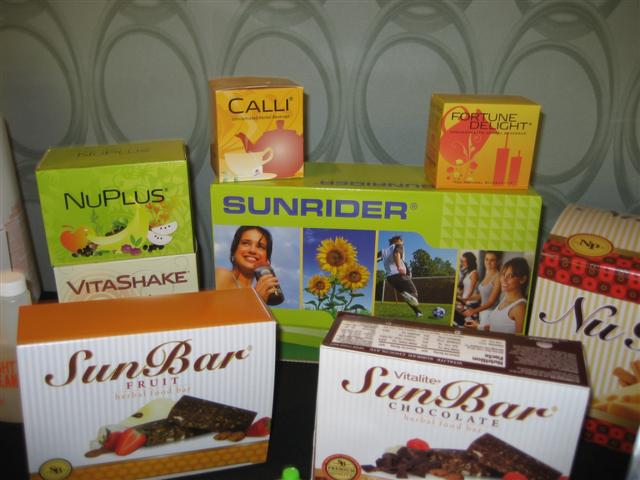
YES - I WANT VIBRANT HEALTH! I WANT ENERGY, CLEAR THINKING - I WANT TO LEARN MORE! Receive Diana's Healthy Lifestyles Newsletter by submitting the form below.
CANDIDA - WHAT FOODS SHOULD I EAT IF I HAVE CANDIDA? Please eat organic where possible. Also remember to "listen to your own body" - sometimes a person can tolerate cottage cheese just fine, others can't. Same with buckwheat and other grains.
1. Lean fresh meats and poultry
2. Vegetables
3. Roots
4. Legumes, Beans, Lentils
5. Cottage Cheese (low-fat, no sugar)
6. Olive Oil and butter
7. Yeast-free bread Please note grains should be avoided or used in tiny amounts
8. Amaranth
9. Garlic, onions
10. Deep sea fish
11. Greens
12. Oatmeal, corn Please note that you need to be very careful with Oatmeal and Corn products
13. Brown Rice
14. Eggs
15. Vegetable soup
16. Quinoa, Millet
17. Tuna or sardines (occasionally)
18. Buckwheat
19. Yogurt (plain, no additives, no sugar) Note that I am personally more vegetarian than a meat-eater. I was strict vegetarian for 5 years, I was vegan for 1 year. Now I eat organic chicken and wild fish once or twice a week. I feel this is a personal choice. When you are going from eating lots of grains and sugars, it is easier to be including some fish and chicken in your diet, I think.
I LOVE MY SUNRIDER NUTRITION WHICH IS PERFECT FOR ANYONE LOOKING FOR NUTRITION. It's up to you, Sunrider nutrition makes it much easier to stay on an Anti-Candida Eating Plan!

WHAT FOODS SHOULD I AVOID IF I HAVE CANDIDA?
1. Sugar in all forms, including honey and molasses
2. Seeds and nuts
3. Sauerkraut
4. Mushrooms
5. White flour
6. Soda
7. Alcohol
8. Black tea
9. Malt
10. Aged cheese
11. Vinegar
12. All fruits and fruit juices
13. Most Dairy products (exceptions can be yogurt, cottage cheese)
14. Soy Sauce
15. Ham
16. Coffee
WHAT ARE SOME SIGNS AND SYMPTOMS OF CANDIDA OVERGROWTH?
1. Gas and Bloating
2. Brain Fog
3. Infections
4. Fatigue
5. Sugar and Carbohydrate Cravings
WHAT IS CANDIDA?
Candida albicans is the most common yeast found in the human body. Yeast is one of the many types of micro-organisms normally found in the human digestive system. Digestive yeasts or molds, as they are sometimes called, are considered to be parasites. Parasites are organisms that live by feeding upon another organism (the host) which produces harmful effects for that host. Candida is a parasite in the human body that eats nutrients found in the digestive tract. Candida produces over 70 known toxins as a by-product of their digestive process.
WHAT CAUSES CANDIDA OVERGROWTH?
In a healthy digestive system, there is approximately 1 yeast cell for every 1 million bacteria cells. In this small ratio, yeast is constantly fighting to survive. The pH of a healthy gut is not optimal for Candida to thrive as they must compete for nutrients with good bacteria that far outnumber them. Unfortunately, for a variety of reasons, this ratio can become unbalanced, and Candida can grow quickly and significantly in number.
The delicate balance of the intestinal environment is affected by:
1. Prolonged stress
2. A diet high in processed food
3. Incomplete digestion
4. A variety of medications, including antibiotics
When this balance is upset, many negative effects take hold.
ANTI FUNGAL / YEAST DIET
FOODS TO BE AVOIDED
WHEN TREATING CANDIDA YEAST / FUNGUS OVERGROWTH
Fungus grows when sugar, starch and high carbohydrate foods are consumed and is fed by gluten containing grains.
Gluten grains include wheat, oats, rye, and barley.
The fungus also grows and is fed by other yeast molds and yeasty foods.
Sweets and desserts of any type including products made with honey or molasses as well as any form of sugar or products listed on the label that end in "ose", such as, fructose, glucose, etc.
Fruits - this will increase the blood sugar and encourage yeast growth.
Wheat, oats, rye, barley , or corn. Starchy foods such as, rice, potatoes, beans and corn may need to be excluded from the diet.
Milk, and milk products, including all cheeses, sour cream, except butter and unsweetened yogurt. encourage yeast overgrowth. (Cottage cheese and yogurt may be acceptable)
Restrict the consumption of yeast in food preparations in all breads, rolls, coffee cakes, hot dog and hamburger buns ,cookies, crackers, biscuits, and pastries of any kind.
Avoid vinegar and vinegar containing foods / pickled vegetables / sauerkraut / relishes / green olives / salad dressings /soy sauce / catsup / mayonnaise / horse radish / barbeque sauce / tomato sauce / anything which has been prepared, canned / tinned or bottled.and natural root beer.
Pickled, smoked, or dried, meats, fish, or poultry, including sausages, salami, hot dogs, pickled tongue, corn beef, pastrami, smoked sardine.
FOODS TO AVOID:
1. WHEAT!! or wheat by products / all breads and flour products of any kind
2. CORN, (popcorn) / PEANUTS, (peanut butter, etc)
3. All cheeses
4. Any kind of alcoholic beverage.
5. All sweets, desserts, and sugar foods
6. All smoked, cured meats and prepared or breaded meats
7. All Vinegars
8. All Condiments such as: ketchup / mayonnaise / sauerkraut / horse radish / salad dressings / barbeque sauce / tomato sauce / anything which has been prepared, canned, tinned or bottled.
9. All Alcohol and Malted drinks
10. All carbonated drinks, soda drinks and diet drinks
11. All dairy products such as: milk / cheeses / sour cream
12. All Sugars, refined or raw brown sugars
13. All fruit and fruit juices, especially canned or frozen (except recommended products)
I LOVE MY SUNRIDER NUTRITION WHICH IS PERFECT FOR ANYONE LOOKING FOR NUTRITION. It's up to you, Sunrider nutrition makes it much easier to stay on an Anti-Candida Eating Plan!
Diana Walker, Cravings Coach, CEO, Diana's Healthy Lifestyles